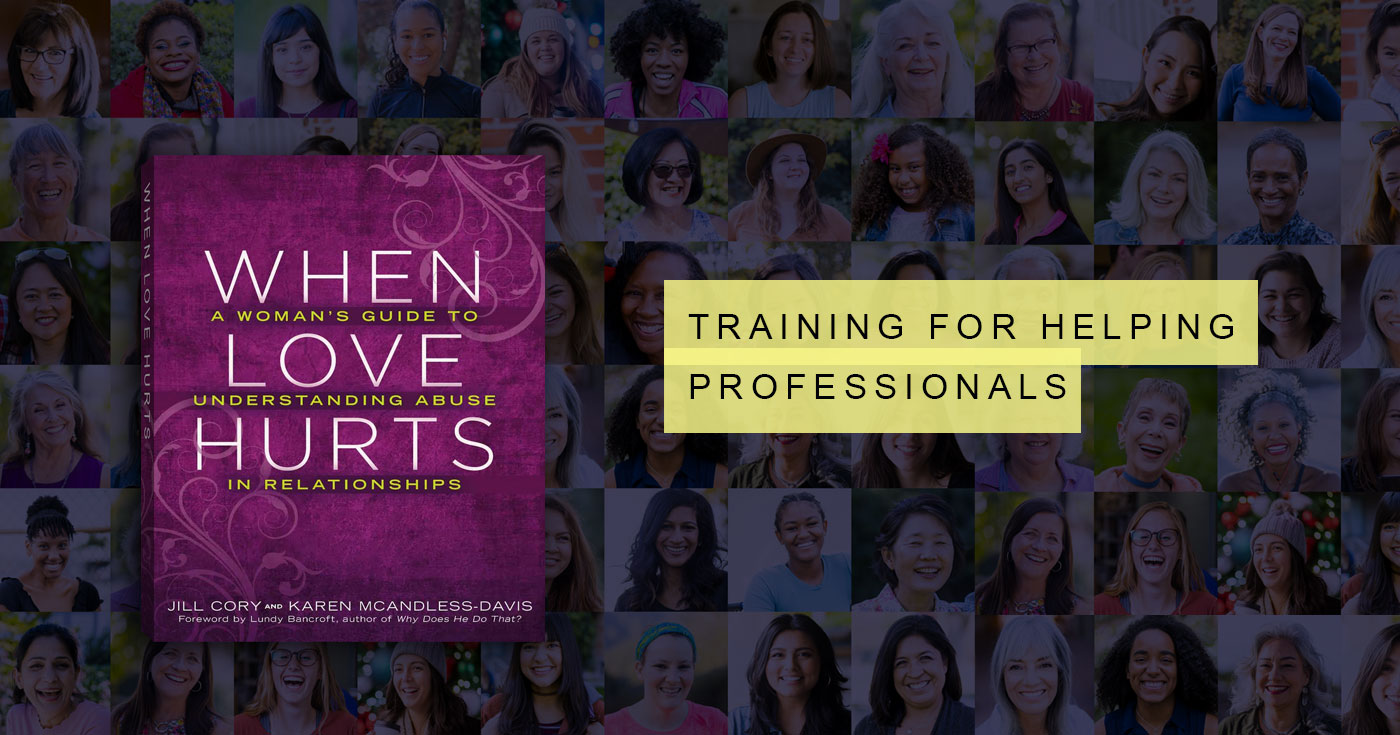Is My Problem Low Self-Esteem?
Some women who are abused by their partners wonder if the problem is low self-esteem. A woman may wonder if this is why she has “put up with abuse” for so long; because she did not think she deserved better.
No one, independently, develops a solid sense of self. Humans are, by nature, social beings. All of us have our self-image shaped by the people around us, especially those we are close to. People in our lives act as mirrors, reflecting information back to us. The problem is, if you are with an abusive partner, you have had one huge mirror dominating your life – your partner – and that mirror is sending back false information to you. Your partner is like one of those crazy distorted mirrors you might find at a circus. Those mirrors are designed to lie. They completely distort your image so much that you can hardly recognize yourself. This is what your partner does to you. He says things like you are “lazy”, “stupid” or “a bad mother”. But these things are not true.
Further, because abusive men insist on dominating a woman’s life, they end up pushing out other mirrors in your life. Your partner has perhaps discouraged your friendship with people who might reflect a more positive and more accurate picture back to you.
For these reasons, we don’t think of women as having “poor self-esteem”. You may not feel like you have much self-worth, but this is the result of your partner manipulating your ideas about you – not some sort of inherent weakness or problem that you have. Some women have been told that if they ‘work’ on their self-esteem, their relationship will improve. If your partner is abusive, this is not true. You cannot hold onto a positive image of yourself while you are with your partner. He does not want you to feel good about yourself.
Over the years, women have shown us that once they get some distance from the abuse, their sense of self heals. It is getting rid of that big distorted mirror and gradually replacing it with accurate mirrors. By this we mean bringing into your life people who will reflect back an accurate picture of yourself. It is inviting people into your life who will tell you what they like about you and what strengths they see in you. A women’s group is a great place for this part of the healing process to begin. The facilitators and other participants in group help you to see yourself in a more accurate way.
Some women say that they entered their relationship with a poor sense of self to begin with. This is also no reason or explanation for abuse. It is not unusual for a person to come out of a bad childhood or bad relationship not feeling good about themselves. A loving, respectful partner helps us to see the best in ourselves and is protective and kind about our vulnerabilities. Your partner likely presented himself as a kind and affirming person in the the beginning (honeymoon phase) but ultimately he capitalized on the negative ideas that you had developed about yourself. They became fuel for his abuse.
Sometimes it is suggested that women with “poor self-esteem” take an assertiveness training course. We think this is dangerous advice. Your partner is not abusive because you lack assertiveness. Abusive men will take any effort, on the part of a woman, to assert herself as a challenge to his power and control and will become more abusive. If you are cautious and accommodating to your partner that is because he is dangerous and you are doing your best to keep safe. When women are told that the “problem” is her “poor self-esteem” or her “lack of assertiveness”, reality is distorted and the focus shifts off of the real problem – the man’s abuse. Women end up confused once again and in even more danger. (This entry has also been posted as an Article.)



When Love Hurts Reflections, News and Resources
Reflections from a four-decade journey working toward a safer and more respectful world for women…
The destruction of parental alienation accusations: one woman’s story
When asked to write an article on the impacts parental alienation accusations had on me…
A framework of healing from coercive control and abuse
This descriptive framework is a collection of signs, feelings, actions, attitudes, and more, that indicate…
Women’s experiences of counsellors
Over the years, we have heard stories from women of counsellors who offered advice that…
How women resist abuse
In our experience, when women are treated abusively in their relationship, they always seek ways…
First do no harm
Research and frontline experiences have documented women’s narratives about how the dynamics of abuse are…
Holding space for painful realities
One of the dynamics of abuse is that abusive men take away all the good…
Upcoming online training: Certified Training for Helping Professionals
Training for helping professionals to provide a proven framework and comprehensive guide to strengthen their…